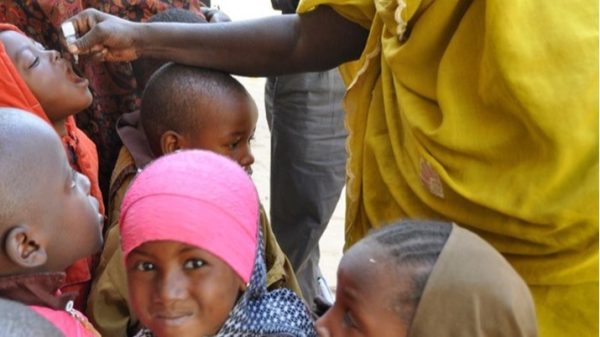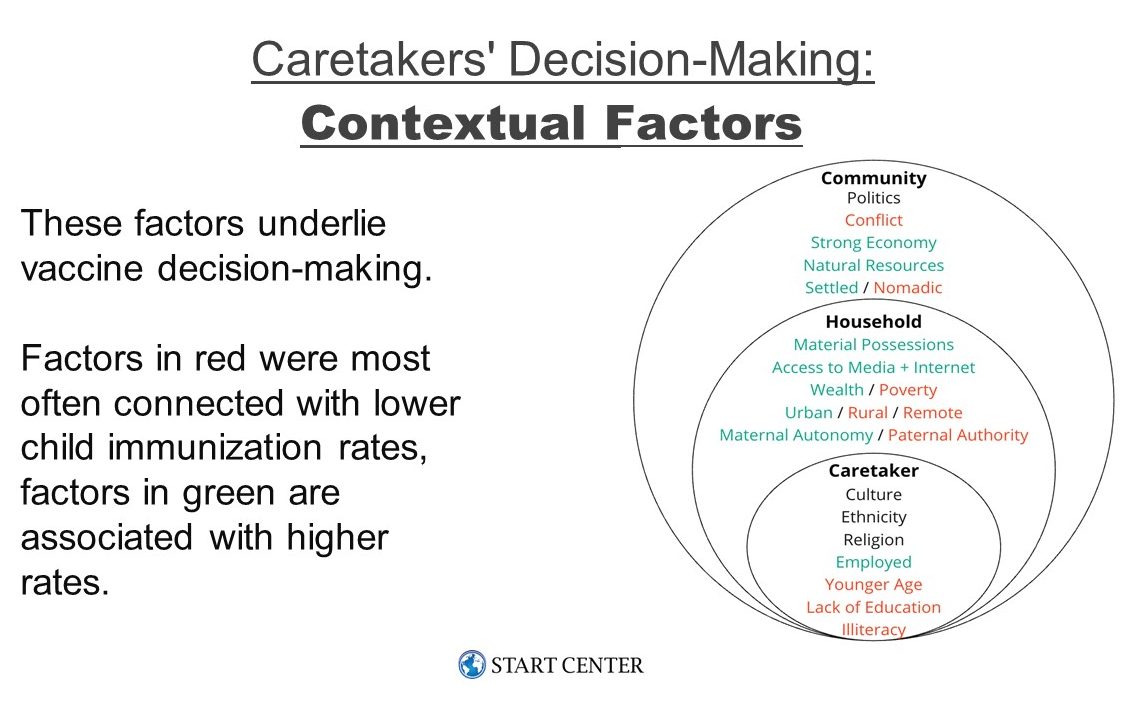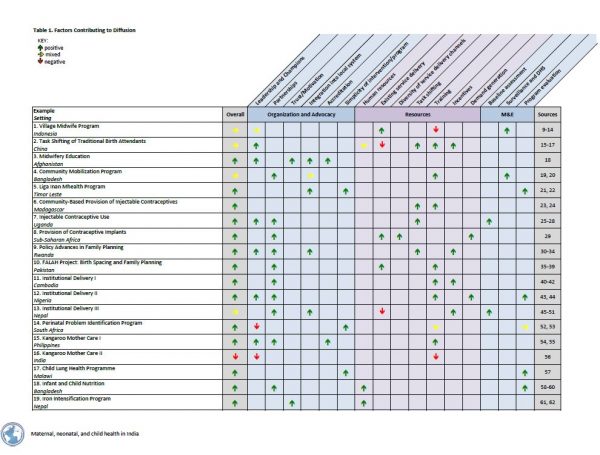
The University of Washington's Strategic Analysis, Research & Training (START) Center, in conjunction with the Polio team at the Bill & Melinda Gates Foundation, has developed a comprehensive report that explores how gender factors influence Nigerian caretakers’ decisions to immunize and/or seek care for their children. The report was generated from the in-depth review of 61 articles, 20 of which were specific to Northern Nigeria, 13 of those specific to Polio.
Key gender factors found to affect vaccine demand and healthcare seeking included female caretakers’ schedules, birthing experiences, and lack of education and literacy. Beyond the caretakers themselves, intra-household dynamics also affected behavior: male spouses had decision-making authority, elder males and elder females such as fathers-in-law and grandmothers were highly influential, and the sex of the child was a factor as well. The broader context in which the caretaker and their family made health decisions also had influence: the gender of health workers and campaign workers as well as vaccine misinformation and the community’s social norms around female autonomy all affected caretakers’ thinking.

These findings are presented alongside 3 additional analyses: 1) Analysis of the caretaker’s healthcare journey outlines how, given the community and social context in which she lives, the caretaker forms her health opinions and decisions over time from pregnancy until the moment she interacts with health workers 2) Analysis of Northern Nigeria’s specific literature describes how insular, often nomadic, communities are gatekept by influential males, particularly religious figures who have varying beliefs from vaccination being incompatible with Islam, to vaccines being a tool of western ideologies, to vaccines carrying birth control designed to cause infertility 3) Analysis of healthcare seeking behavior for polio-like symptoms relates that myths remain about the causes and cures for polio-like symptoms, but that beliefs and healthcare seeking behavior may be shifting. While unorthodox first aid is almost always applied, many do turn to orthodox care, though familial relations continue to be a large influence on the caretakers’ decision to seek non-traditional care outside the home.
Throughout the report, highly relevant studies completed in Zamfara, a northern state of interest, are highlighted to bring analysis to life. The START team successfully delivered a final presentation and written report to the Foundation to inform on the creation of study design instruments for research set to occur in Northern Nigeria.






